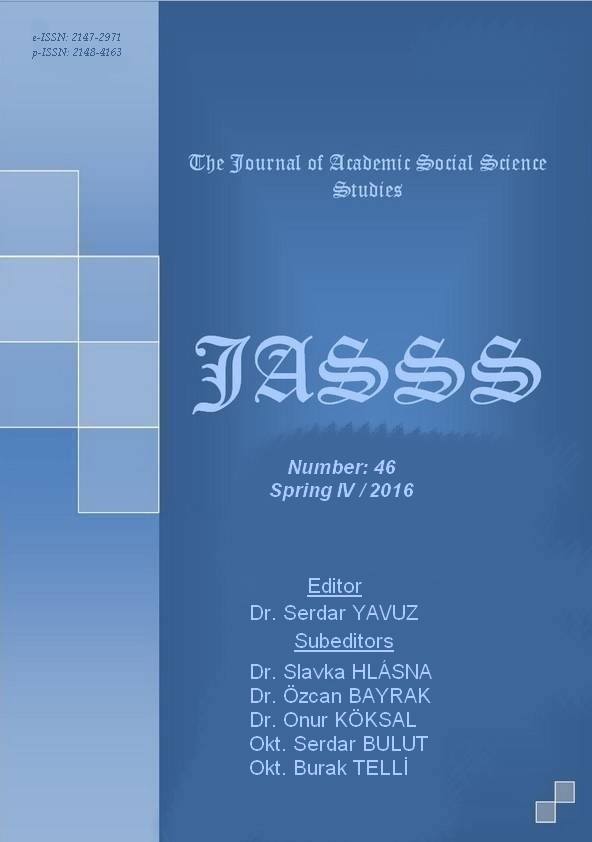Author :
Abstract
Yeni medyanın geleneksel kitle iletişim araçlarından farklı olarak izler kitlesine sunduğu ortamlardan biri de içerikleri kullanıcılar tarafından oluşturulan internet sözlükleridir. Özgür ve alternatif bir kamusal tartışma platformu oluşturma potansiyeline sahip bu sözlükler, kavramlara yükledikleri anlamlar ve aktardıkları değerler nedeniyle siber kültürün şekillenmesinde etkili platformlar haline gelmiştir. Bu platformların çeşitli boyutlarıyla çözümlenmesi, yeni medya çalışmalarının en önemli kategorilerinden birini oluşturan siber kültüre ilişkin kuramsal birikime önemli katkı sağlayacaktır. Söz konusu katkıyı bu sitelerdeki cinsiyetçi söylemi sorgulayarak sunmayı amaçlayan bu makalede, öncelikle, Google arama motorunda “kadın” ve “sözlük” anahtar kelimeleri girilerek 11 internet sözlüğü tespit edilmiş, daha sonra, bu sitelerin her birinde, “kadın” anahtar sözcüğüyle elde edilen sonuçlar üzerinden bir içerik çözümlemesi yapılmıştır. Çözümlemede, kadınlara ilişkin nasıl bir tutum sergilendiği, kadınların en sık hangi niteliklerle tanımlandığı ve kadınlara karşı nefret söylemi kullanılıp kullanılmadığı tespit edilmeye çalışılmıştır. Araştırma sonucunda, analiz edilen katılımcı sözlüklerde kadınlara karşı cinsiyetçi bir söylemin hâkim olduğu, kadına yönelik pornografik betimlemeler üzerinden toplumun kolektif bilincinde kadın imgesinin cinsel nesne olarak kurulmasına katkıda bulunulduğu, dolayısıyla, kadınların bir nefret söylemi içinde araçsallaştırıldığı tespit edilmiştir. Bu tespitle birlikte, katılımcı sözlüklerin toplumsal cinsiyet eşitsizliğine karşı çıkan yeni ve alternatif bir tartışma platformu olmaktan ziyade, mevcut cinsiyetçi yapıyı koruyan ve pekiştiren bir tutum benimsediği sonucuna varılmıştır.
Keywords
Abstract
Online dictionaries built up on user contribution are one of the platforms provided by the new media, unlike traditional mass media, to the audience. Such dictionaries with a potential to provide a free and alternative public discussion platform have become a sort of platform influential on the shaping of cyber culture by virtue of the meanings they attribute to concepts and the values they transmit to the public. Analysis of such medium with various aspects would contribute significantly to the accumulated knowledge on cyberculture, which is one of the most important categories of new media studies. In this paper seeking to provide such contribution by interrogating the sexist discourse in these sites, 11 online dictionaries of this kind were determined by entering the keywords “woman” and “dictionary” in Google in the first instance. Thereafter, a content analysis was carried out in such 11 online dictionaries entering the keyword “woman” in each site to determine the attitude of the entry authors towards women, the characteristics used most frequently to identify women and whether a hate speech was used in the online dictionaries. The analysis has revealed that a sexist discourse dominated the dictionaries analysed hereunder, that through the pornographic statements about women, the dictionaries contributed to the construction of the image of women in the collective mind of the society as a sexual object, thereby instrumentalizing women in a discourse of hatred. The overall finding of the research is that the online dictionaries adopt an attitude maintaining and reinforcing the current sexist social structure, rather than providing a new and alternative discussion platform.





